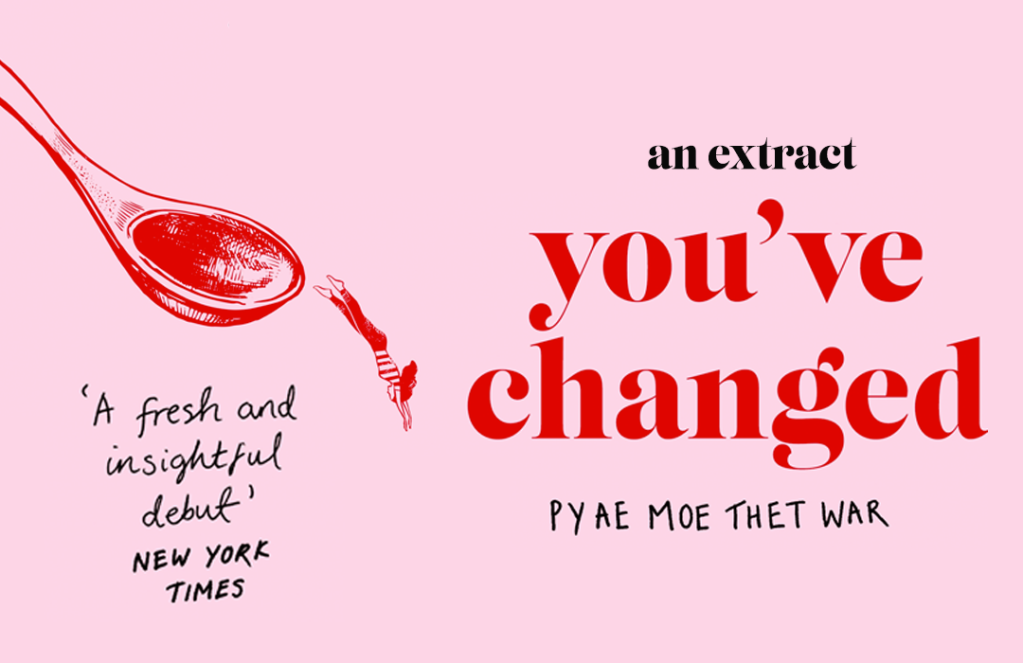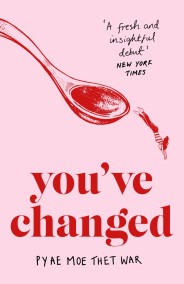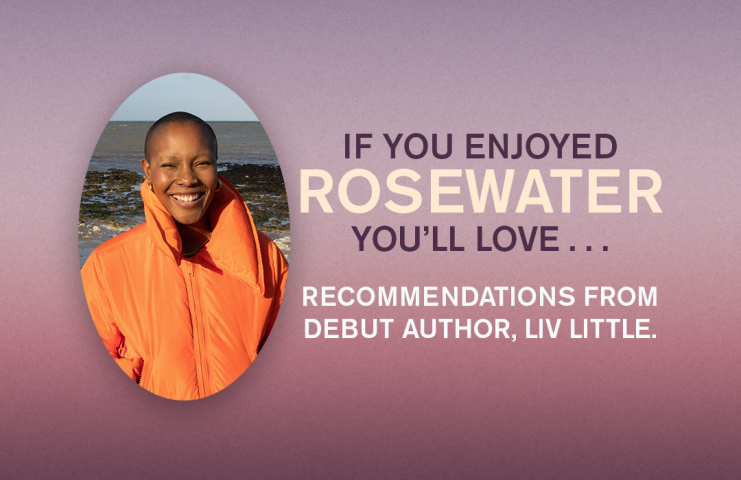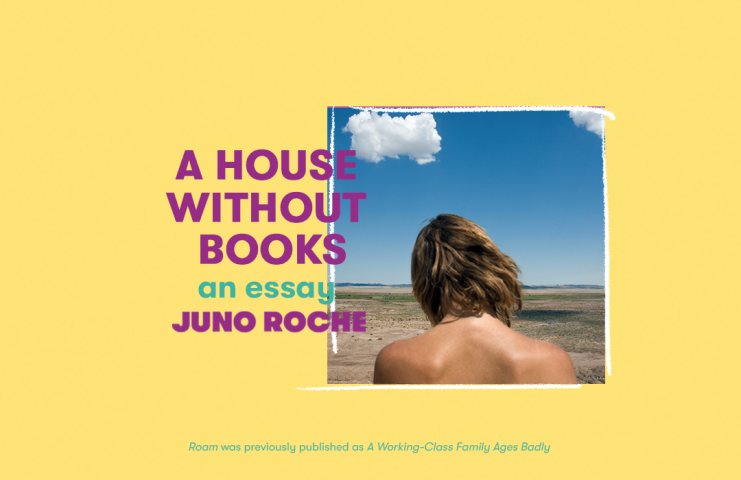You’ve Changed: Read an Extract

fWhat does it mean to be a Myanmar person – a baker, swimmer, writer and woman – on your own terms rather than those of the coloniser?
In this electric debut essay collection, a Myanmar millennial playfully challenges us to examine the knots and complications of immigration status, eating habits, Western feminism in an Asian home, and more, guiding us toward an expansive idea of what it means to be a woman today. Throughout, she wrestles with the question of who she is - a Myanmar woman in the West, a Western-educated person in Yangon, a writer who refuses to be labelled a ‘race writer.’ With intimate and funny prose, Pyae shows how the truth of identity may be found not in stability, but in its gloriously unsettled nature
A ME BY ANY OTHER NAME
I have two names, which is one whole name more than most people have. I’ve been asked about it all my life. Usually I just smile and say, “It’s a long story.” My legal name—that is, the one on my birth certificate and passport and other bureaucratic documentation—is Moe Thet War, but everyone calls me Pyae Pyae (or Pyae, depending on how close we are). I guess technically the latter is a nickname, but it feels wrong to call it so. After all, my parents picked it out with as much careful consideration as they did Moe Thet War. Despite the number of times I’ve had this conversation, it’s always a strange experience for me to explain the whole story to someone who doesn’t get it. What’s there to get (or not get)?
The first time I visited my boyfriend Toothpick’s hometown in the East Midlands of jolly ol’ England, his mother asked, “But which one is your christened Christian name? What were you given when you were baptized?” Even after multiple explanations, she and her Catholic upbringing couldn’t quite grasp that I didn’t have a christened Christian name. My parents are Theravada Buddhists, which means we don’t have baptisms, or any religious name-giving rites of a similar nature. In Myanmar culture, people believe that a good name
will bring good karma for the rest of that person’s life. My parents, especially my mom, are also highly religious and superstitious, so when I was born, they went to a palm reader whom they’d been seeing for years, like a family doctor. The palm reader then made the types of calculations that only palm readers know how to make, and she produced a list of names that would assure a bright and prosperous future for me (my literature and creative writing degrees would say that it didn’t work).
My parents’ only condition when they approached their all knowing palm reader was that each of my potential names contain one of their names. They settled in Moe Thet War. I share the Moe from my dad’s name, just as I share his patient temperament, and the Thet from my mom’s, like I do her quiet but unyielding determination; I assume the War just worked out in the stars. Although I never use it except on official forms, I love this name because it feels like a concrete and constant reminder that, for better or for worse, my mom and dad are always a part of me.
Pyae Pyae was a separate yet seemingly equally complicated process, and it ties in with my siblings’ names. Pyae means “full.” My brother’s name, Phyo, means “grow,” and my sister’s name, Shan, means “overflow.”My parents named us in this order so that, as an entity, we’re first full of all the good things in life—wealth, health, happiness, love, et cetera—and then that number just keeps growing, until it’s finally overflowing. Do I think it’s a little over the top? Definitely, and I wonder how long they would’ve tried to keep this up if they’d had, say, eight children.
Like Pyae Pyae, the repetition of names is common in Myanmar culture; in addition to the example of my siblings, my grandmother, whom we call A May, is Myint Myint. In fact, all of my grandmother’s sisters have names that are just two repeated words: Cho Cho, San San, and Ni Ni. Myint means “high” (to clarify: as in “elevated”), Cho means “sweet,” San means “new”or “novel,” and Ni means “red.” Unlike my parents, my great-grandparents did not have too much time on their hands to construct a story about their daughters being elevated, novel, sweet, and red. But you can tell that they did want their daughters’ names to reflect good things. My mom’s name, Thet, means “life,” and during one random fight over how my mom’s name came to be Thet Thet, A May sighed and said, “What are you talking about? Of course I remember why I named you Thet Thet. It’s because I loved my child more than life itself, so I was calling you my life.” Mom didn’t have a retort.
In spite of the amount of attention that your parents put into picking out your name, when I was growing up,there was a prevalent trend among my friends to pick out a Western nickname for themselves. My friend Khin can still recall when, on her first day of school, she was handed a book of alphabetized Western names to choose from, so as to help (cough, cater to) the American teachers at our school. Up until she graduated from high school, she went by Anna; I called her this for eleven years. She only ditched Anna once she went to the United States for college and wanted to ground herself more firmly in her cultural heritage, and it looks so weird to even write it out now. I’ve technically known her as Anna for longer than I’ve known her as Khin, but I can’t even physically say the name Anna when I’m talking to or about her anymore. It’s a bizarre childhood anecdote that we ponder over from time to time: Who was Anna?
There’s a great sketch in Key & Peele where a class of high schoolers who come from predominantly white, middle-class backgrounds are one day taught by Mr. Garvey, a new substitute teacher who has spent his career teaching inner-city children. He begins class by going through roll call. “Jay-KWAY-lin?” he asks, as a young girl called Jacqueline attempts to correct him; Mr. Garvey refuses to believe that that’s how the name is pronounced. Next, he calls on “Buh-LAH-kay,” who responds, “My name’s Blake”; Mr. Garvey throws down
his clipboard and asks, “Are you out of your goddamn mind?” Next, he reads, “Dee-nice,” and the camera pans to a blond girl who is sheepishly looking around with her head down, unsure of if and how to respond. Finally, she says, “Do you mean Denise?” Mr. Garvey breaks his clipboard in half and demands, “You say your name right, right now,” and the girl again responds, “Denise.”
“Say it right.”
“Denise?”
“Correctly?”
“Denise.”
“Right.”
“Denise.”
“Right.”
Finally, Denise shakes her head, bites her tongue, and says, “Dee-nice.”
Mr. Garvey is satisfied.
Once when I was younger, I asked my mom if I could choose a new name. When she asked me why, I explained that none of my teachers ever knew how to pronounce it. I was privileged enough to attend an international school where one of the biggest selling points was that
all the classes were taught by Westerners (usually from the United States, a few from Australia and the United Kingdom, and a handful from other predominantly white countries). My first-grade homeroom teacher was a woman named Ms. Win, and she was the only Myanmar head teacher I had. Each class also had an assistant teacher, and they were all Myanmar, but apart from Ms. Win, all the other head teachers were white. Of course, Ms. Win and the assistant teachers never had a problem pronouncing “Pyae Pyae,” but I instead focused on the fact that my white teachers just couldn’t seem to make that one-syllable sound; they didn’t know how to pronounce a lot of our names, but mine was always especially difficult. I hated the first day of the school year because during roll call I’d have to brace myself for that awkward silence, followed by “Um . . . Pie Pie?” I’d raise my hand and correct them with a weak smile, although most of them still wouldn’t be able to pronounce it correctly.
“How do you say it?”
“Pyae Pyae.”
“Again.”
“Puh-yay, puh-yay.”
“Pee pee?”
Close, but not exactly. Ultimately, I’d nod and bite my tongue, and although we both knew that they hadn’t gotten it right, they’d just leave it at that. As an adult, I once shared this story with a group of friends, specifically recalling how messed up it was that I’d felt from a young age that I should cater to my white teachers; one person in the group, a white man, spoke up and said it felt melodramatic to use that specific phrase, especially in regard to something as innocent as elementary school roll call. I felt anger shoot through me as I remembered how, regardless of how many times I repeated this ritual, I’d always feel guilty that it was because of me that roll call was taking so long. These teachers wouldn’t have stumbled on Blake or Jacqueline or Denise. My stupid name was holding everyone up. Even at the age of six, felt so sure that it was my name that had to change. And when Khin went by Anna, and others went by Louis and Paul and John, none of our white teachers ever questioned it; I don’t know if this was because they wanted to respect our choices or because, secretly, they were relieved and maybe even a bit thankful (I am tempted to give them the benefit of the doubt and lean toward the former explanation).
I remember once going through Tripadvisor feedback for a hotel in town, and one of the five-star reviews thanked the staff in the lounge for using Western names and making life easier for them during their stay. I find myself thinking about that review a lot more than I should, and about the audacity of being a visitor in another country and encouraging an establishment to make people who were very clearly not a Susan or a Joe ditch their real names while working. Then again, I also think a lot about how much easier and less stressful a lot of social interactions would be if I just went by Moe. Moe Thet War is easy to say when you break it down, but still too much for non-Myanmar people to handle, and Pyae Pyae just straight-up terrifies them; but Moe is a good middle ground, and I could probably break the ice with some joke from The Simpsons. And yet I really don’t like it when someone calls me Moe. I’m not offended, but it feels strange and jarring, like a stranger calling me by a childhood nickname. I am Moe Thet War and I am Pyae Pyae, but I am not Moe.
You see, just as Toothpick’s mom was wrapping her head around the fact that (1) I was not baptized and (2) I did not have a christened Christian name, she then had to also process the fact that I didn’t have a middle or last name either. Myanmar families typically don’t have
shared last names, and we never have middle names. So technically, Pyae Pyae and Moe Thet War are each just one big name. If I were to go by Moe Thet War, my family and friends would call me by my whole name, not just Moe. When white people point out that that’s weird or sounds like a mouthful, I like to point out that Elizabeth itself has more syllables than Moe Thet War, and no one feels like it’s a chore to say Elizabeth Taylor.
When we had to sign up for APs and SATs in high school, I had to decide what name I wanted on my file. Our high school counselor, a tall, lanky white American man in his mid-forties we called Mr. Mike, spent every day stressing to each of us over and over again how crucial it was that we put down the same things if and when I became a published author, I’d publish under Moe Thet War because that just made the paperwork less complicated. Now, however, it was less of a clear choice. For one, I didn’t want to have to keep explaining to all the new people I’d work with why I went by Pyae Pyae instead of what was printed on my book cover, and second—and more pressingly—I realized it would be almost dishonest to fulfill a lifelong dream while neglecting such a central part of my identity. I’d imagine my friends going into a bookstore and saying, “That’s Pyae’s book,” and it felt bizarre to imagine them holding up “Pyae’s book” without “Pyae” printed anywhere on the cover. I wish I could go back and tell my elementary school self who wanted to replace Pyae Pyae with something like Lizzie (after McGuire, obviously) that in a couple of decades, she would make an entirely voluntary choice to have “Pyae” printed on the front of her debut book.
When I was twelve, my mom came home one evening after a round of parent-teacher conferences with a puzzled look on her face. I was worried that it was something to do with my report card, which I had yet to see, but her concern was instead directed at my sister.
“Shan?” she asked my then-eight-year-old sister. “Are you going by ‘Rose’ at school?”
My sister nodded but offered no further explanation, unsure why this was a topic of conversation.
“I only found out when your teacher showed me you work today and it all had the name ‘Rose’ on it. Why did you choose ‘Rose’?”
“Because you always say that when I was born, I was so pink and beautiful like a hnin si flower. And hnin si in English is ‘rose.’
It was a logical response, one that my mom couldn’t really argue against, but after hearing my sister’s reply, I also shared Mom’s confusion. Shan was a perfectly good name. It wasn’t even difficult for her American teachers to pronounce. What was wrong with it? To this day, I don’t think even she knows the answer.
For the next seven years, my baby sister went by Shan at home and Rose at school. When we talked about her with family, we called her Shan, and with her friends, Rose. It almost morphed into a fun Hannah Montana–esque double life for her.
The thing was, though, the Pyae–Phyo–Shan concept didn’t work with Pyae–Phyo–Rose. And it was especially crucial to my mother that, unlike her and her own brothers, my siblings and I never lose one another. On their passports today, my mother and her older brother, whom we call Ba Ba, actually share their father’s last name, Naing—although that wasn’t always the case. A May says that they were forced to change Ba Ba and Mom’s last names to Naing because when they moved to New York for my grandfather’s job, they were legally required to have an official surname. My mom and uncle(s) are more legally bound on paper than my siblings and I will ever be—they are the Naings, a single entity— and yet my mother sees her older brother twice a year and she rarely speaks about her younger one.
Oftentimes, though, to white people, it doesn’t matterif your whole family has the same Western-style last name if that last name—or any part of your name, for that matter—is still a very obvious non-white, non-European one. A two-year study on the usage of “whitened résumés” by people of color showed that the percentage of Asian job applicants who heard back from prospective employers dropped from 21 percent to 11.5 percent if they sent résumés with racial references, such as, say, a blatantly non-Western name. Multiple other studies have been conducted on this topic over the years, and each time, the overarching results are the same.
The thing with names is that they don’t seem like such a big deal until you really think about them and what they represent, or until everyone else makes it a big deal. Shakespeare argued that “a rose by any other name would smell as sweet,” which is pretty inaccurate, because if I had a white name, then my childhood and early teenage years would’ve involved a lot less self-hatred. To this day, I can still recall how much I despised the fact that I could never teach my teachers to twist their tongues to correctly pronounce this one syllable once, never mind twice. Of course, any other name seems equally easy and sweet when you’ve got a name like William, or better yet, Bill. I’ve been in situations where everyone could keep track of who was Meghan and who was Megan, and yet my name appeared too convoluted for them to even attempt to say aloud.
You’ve Changed
by Pyae Moe Thet War
'A fresh and insightful debut' New York Times
'Incisive and exciting' Shondaland
In this electric debut essay collection, a Myanmar millennial playfully challenges us to examine the knots and complications of immigration status, eating habits, Western feminism in an Asian home, and more, guiding us toward an expansive idea of what it means to be a woman today.
What does it mean to be a Myanmar person - a baker, swimmer, writer and woman - on your own terms rather than those of the coloniser? These irreverent and vulnerable essays ask that question by tracing the journey of a woman who spent her young adulthood in the US and UK before returning to her hometown of Yangon.
In You've Changed, Pyae takes on romantic relationships whose futures are determined by different passports, switching accents in American taxis, the patriarchal Myanmar concept of hpone which governs how laundry is done, swimming as refuge from mental illness, pleasure and shame around eating rice, and baking in a kitchen far from white America's imagination.
Throughout, she wrestles with the question of who she is - a Myanmar woman in the West, a Western-educated person in Yangon, a writer who refuses to be labelled a 'race writer.' With intimate and funny prose, Pyae shows how the truth of identity may be found not in stability, but in its gloriously unsettled nature.
What people are saying about You've Changed:
'Reading You've Changed is like staying up all night with a new friend, swapping stories over a take-out container of fried rice. I was charmed by Pyae Moe Thet War's voice, at turns vulnerable, self-deprecating, and always humorous, and by her thoughtful exploration of the liminal space in which her multitude of identities - Myanmar, woman, feminist, writer - reside.'
Larissa Pham, author of Pop Song
'This book was a joy to read. Bracing, heartfelt and frequently laugh-out-loud funny, Pyae Moe Thet War considers the complexities of migration, belonging and what it means to love, in a debut that is as refreshing as it is welcoming. I can't wait to read more from this wonderful writer.' Nicole Chung, author of All You Can Ever Know
'Arresting... In sparkling essays suffused with cutting humour, she recounts her experiences as a 'young, female Myanmar writer' - which she wryly claims is her 'unique selling point' and also her biggest obstacle... This is intoxicating.' Publishers Weekly
'Intelligent, thought-provoking, poignant and a delight to read. A refreshingly honest, original exploration of personal identity and a culture that may be unfamiliar.' Kirkus Review







